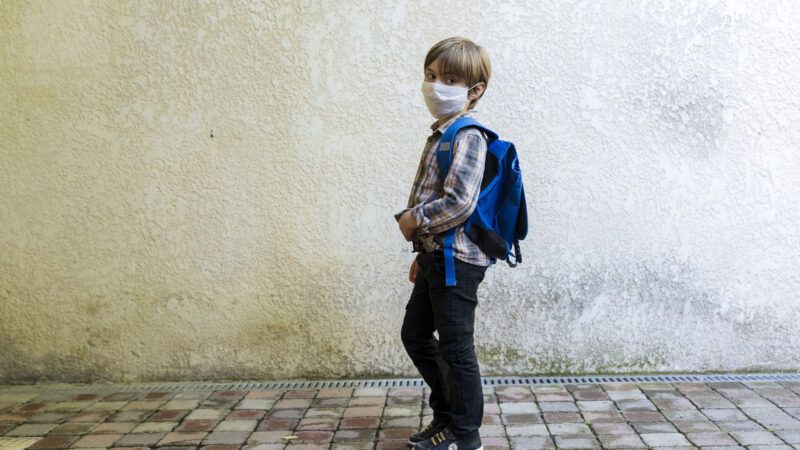Congress Blocks School Choice in New Stimulus Package
Even as the pandemic has exposed the desperate need for disruptions to the calcified public school system, Congress just voted to restrict some of the very creativity that's sorely needed.

Governors are prohibited from using emergency school funding to give families more education options, thanks to a new provision inserted in the 5,600-page bill that Congress passed (without having time to read it) on Monday night.
The new stimulus package includes $2.75 billion for the Governors Emergency Education Relief (GEER) fund, a program established by the earlier stimulus bill passed in March, but it comes with new restrictions on how that money can be used. Seemingly in response to the fact that several governors used the first round of GEER funding to launch or expand school choice programs, the new stimulus bill explicitly excludes "vouchers, tuition tax credit programs, education savings accounts, scholarship programs, or tuition assistance programs for elementary and secondary education."
Because why should parents have more educational options for their kids at a time when many traditional public schools are refusing to reopen, right?
"America's students—especially those from lower income, working class, and special needs families who have been most harmed by the pandemic—deserved better," John Schilling, president of the American Federation for Children, which advocates for greater educational choice, said in a statement. The group says the new restrictions on how GEER funding can be used were included in the bill at the behest of teachers' unions.
After it was created as part of the Coronavirus Aid, Relief, and Economic Security (CARES) Act, which Congress passed in March, the GEER fund allocated $3 billion to states "to ensure education continues for students of all ages impacted by the coronavirus national emergency." At the time, Secretary of Education Betsy DeVos said the fund would provide governors with "the opportunity to truly rethink and transform the approach to education during this national emergency and ensure learning continues," and stressed that the funding was meant to help not only traditional public schools but public charter schools and non-public schools too.
In Florida, for example, Gov. Ron DeSantis (R) used $30 million of his state's initial GEER funding to stabilize a school choice scholarship fund that helps some families afford private schools. In New Hampshire, Gov. Chris Sununu (R) used $1.5 million to expand a tax credit scholarship program—a maneuver that the Heritage Foundation, a conservative think tank, calculated would help 800 students offset private tuition costs.
Some states were even more aggressive in expanding options for students whose education was disrupted by the pandemic. In Oklahoma, Gov. Kevin Stitt (R) used GEER funding to launch a $10 million scholarship program that aims to give more than 1,500 students a chance to afford private education. And South Carolina Gov. Henry McMaster (R) used $32 million of the state's $48 million GEER allocation to provide one-time scholarships to 5,000 students.
South Carolina's scholarship program quickly attracted criticism from the state's teachers union, which criticized the governor's decision to help families seek alternative educational options even as it also said schools needed to remain closed. In October, the South Carolina Supreme Court struck down McMaster's new scholarship program.
The $2.75 billion in new GEER funding is just a small portion of the $82 billion earmarked for education in the new, $900 billion stimulus package. That overall total includes $54 billion for public schools, $10 billion for child care programs, and $23 billion for higher education.
But restricting how this relatively small bucket of GEER funding can be used seems like a mistake. Even as the pandemic has exposed the desperate need for disruptions to the calcified public school system—and even as more families are opting out of a system that has clearly failed to put students first during this crisis—members of Congress just voted to restrict some of the very creativity that's sorely needed.


Show Comments (93)